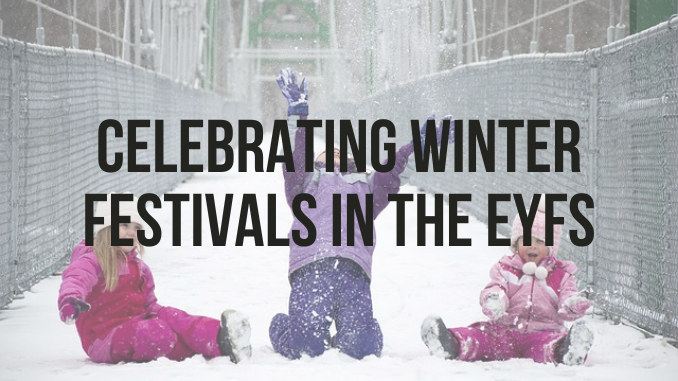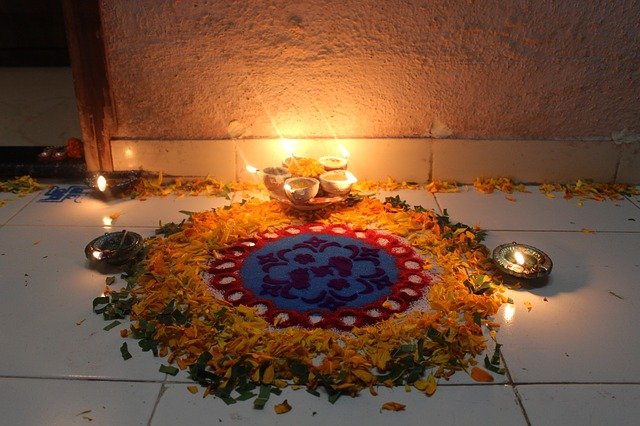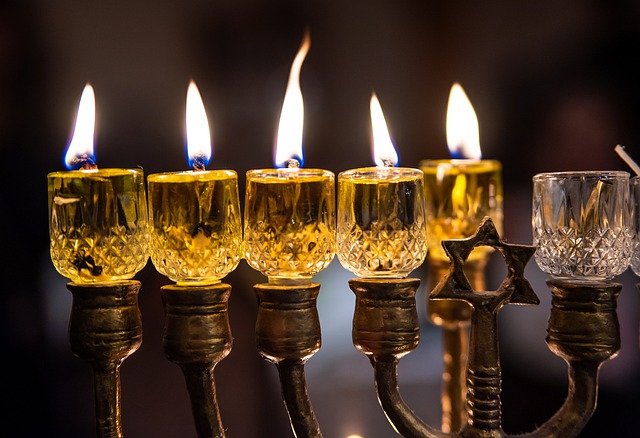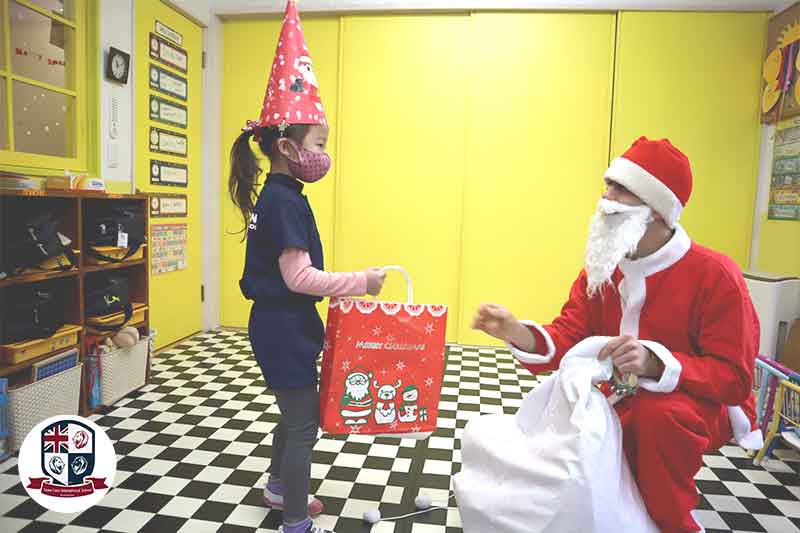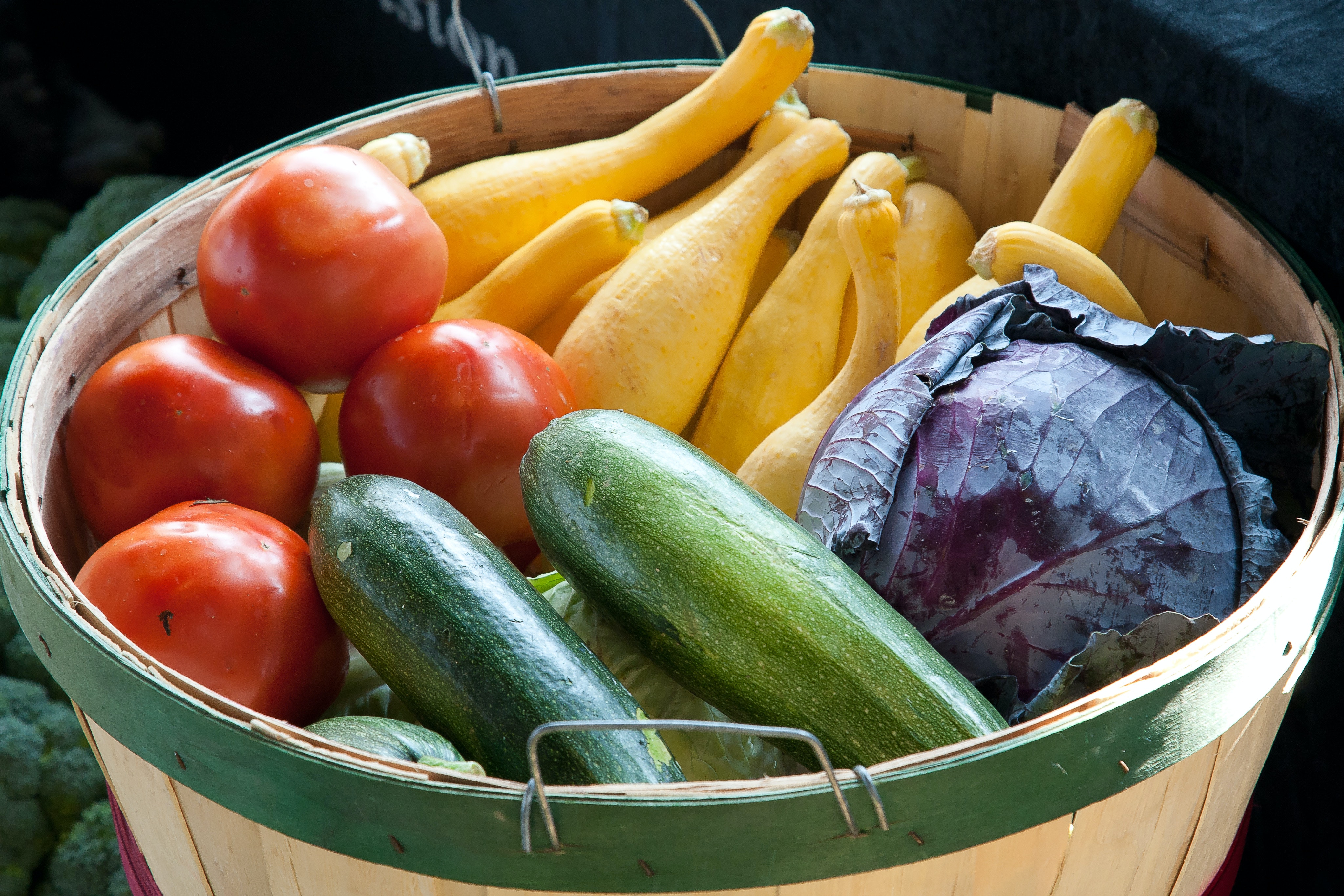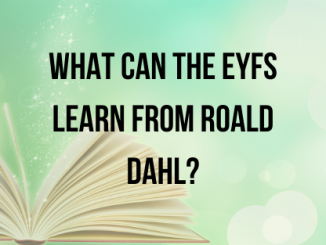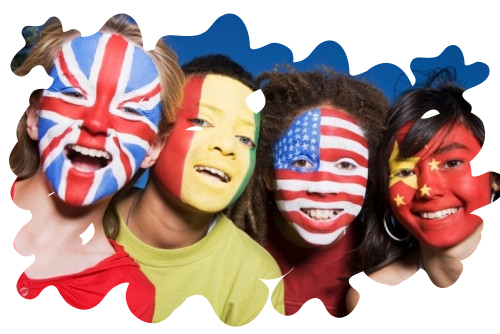November, December and even January are full of special days and celebrations. Many of these are winter festivals from the Northern Hemisphere where days are shorter, colder and darker in the winter and perhaps as a result many of these festivals focus on darkness and light.
Celebrating and learning about different cultures and traditions is an important part of the EYFS, and the theme of light versus darkness and good versus evil is something that most children will understand.
Here we take a look at some of these winter festivals, how they are celebrated and some ways that children in the EYFS can begin to learn about and explore these festivals.
Diwali
A beautiful festival of light, Diwali, Divali or Deepavali is celebrated by Hindus, Sikhs and Jains around the world. Each religion celebrates the festival for different reasons; for Hindus Diwali celebrates the return of deities after an exile and the destruction of a demon by Mother Goddess, Durga. Sikhs remember the release of their 6th guru from prison and in Jainism, Diwali celebrates when their founder reached a state called Moksha, which is eternal bliss. Diwali celebrations include lighting diva lamps and candles, creating rangoli patterns, visiting relatives and having feasts and plenty of fireworks! Light is celebrated in all of it’s forms and this is a great way in for children in the EYFS to begin exploring the festival. Dark dens and experimenting with torches, glow sticks, or light up toys is a lovely way to get children thinking about how light overcomes darkness. Older children might enjoy making their own rangoli patterns using loose parts.
Hanukkah
Hanukkah is a Jewish festival associated with light and is celebrated in November or December. The festival is about remembering a miracle that took place during the rededication of the temple in Jerusalem where a day’s worth of lamp oil lasted for 8 days. The festival focuses around lighting the candles of a Menorah, one candle is lit after sundown on each of the 8 nights of the festival, reflecting the lamp oil burning for 8 days.
Hanukkah is a time for fun and laughter as families get together to eat special food, exchange gifts and play with dreidels. Dreidel is a relatively simple game that would be suitable for children in the EYFS teaching numerical skills as well as turn-taking, following rules and winning and losing appropriately.
Winter Solstice
The winter solstice is the shortest day of the year measured by hours of daylight, and occurs around December 21st. Throughout the ages the winter solstice has been the focus for many festivals, celebrations and traditions worldwide, many of which incorporate themes of light and darkness.
Pagan celebrations
Pagan celebrations of the winter solstice vary quite widely but some celebrations include lighting bonfires or candles to encourage the sun to return, as the days start to get longer and lighter again after the solstice. Children can experiment with the returning light by creating light catchers for their windows.
Dongzhi Festival

Dongzhi is another Winter Solstice festival, celebrated in China. It finds its roots in the Yin/ Yang philosophy which is another way of conceptualising the tension between light and dark. During this time families gather together and share a meal to welcome in the positive Yang energy as days get longer. Sharing a meal together and looking forward to the coming months would be a lovely way for children to join in with this custom, sharing meals has many benefits for children and beginning to anticipate or look forward to events in the future builds children’s understanding of the concept of time and seasonal change.
Yalda Night
Yalda night is celebrated in Iran during the winter solstice. This festival is based on celebrating the cycle of life, with the word Yalda meaning ‘birth’. Families get together to eat, drink and read poetry and watermelon, nuts and pomegranates are served to symbolise new life. Life cycles is a fantastic topic for children to explore, and growing plants is a really hands on way for children to experience concepts of growth and decay as well as developing their scientific understanding by experimenting with different conditions for growth.
Christmas
Traditionally, Christmas celebrates the birth of Jesus Christ, bringing hope, and light coming into a dark world. Christians around the world celebrate this as a high point in the church calendar with advent, the lead up to Christmas, by lighting candles on a wreath. This is a tradition that has expanded into the use of advent calendars and Christmas countdowns, many of which are a lovely addition to the EYFS classroom.
Whilst, Christmas is one of the most widely celebrated winter festivals, its traditions vary widely around the world. Father Christmas, St Nicholas or Santa Claus is part of many celebrations of Christmas but his role is different in different countries; he leaves small gifts in stocking in some countries, it’s in shoes or boots in other countries. Learning about these differences through stories or videos is a nice way for children to begin to explore cultural differences and similarities.
Kwanzaa
Kwanzaa is a festival based on ‘first fruits’ or harvest festivals from several African countries and is celebrated from December 26 to January 1st. It was created in 1966, after riots in Los Angeles, by Dr Maulana Karenga. During this time some African Americans decorate their homes with fruits and vegetables, dress in special clothes and light a kinara, a special candle holder with red, green and black candles. On each of the seven nights, families gather and a child lights one of the candles on the Kinara, then one of the seven principles, values of African culture, is discussed.
Celebrations often include songs and dances, African drums, storytelling, poetry reading, and a large traditional meal. An African feast, called a Karamu, is held on December 31. Kwanzaa is a festival designed to help African Americans stay in touch with their cultural roots, and can be a good ‘jumping off’ point for exploring immigration, cultural heritage, black history, respect, tolerance and more!

